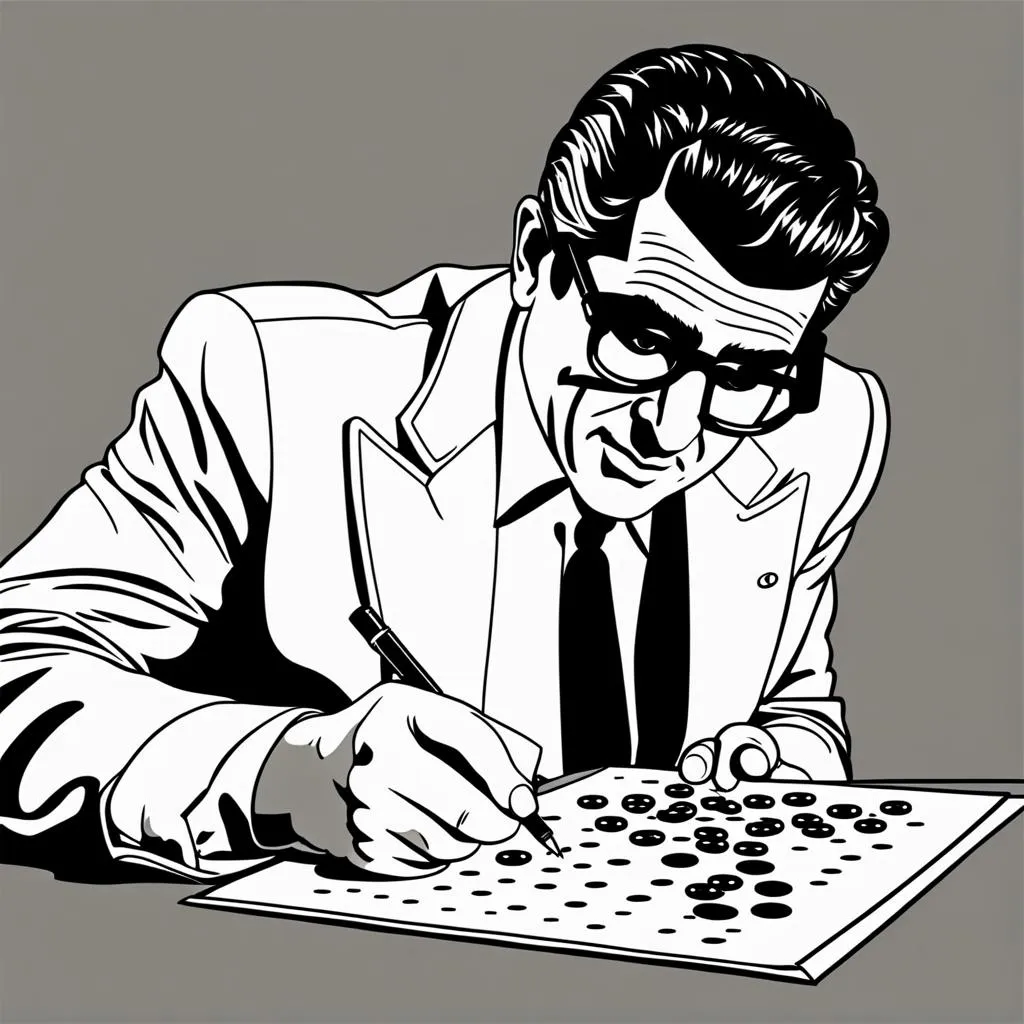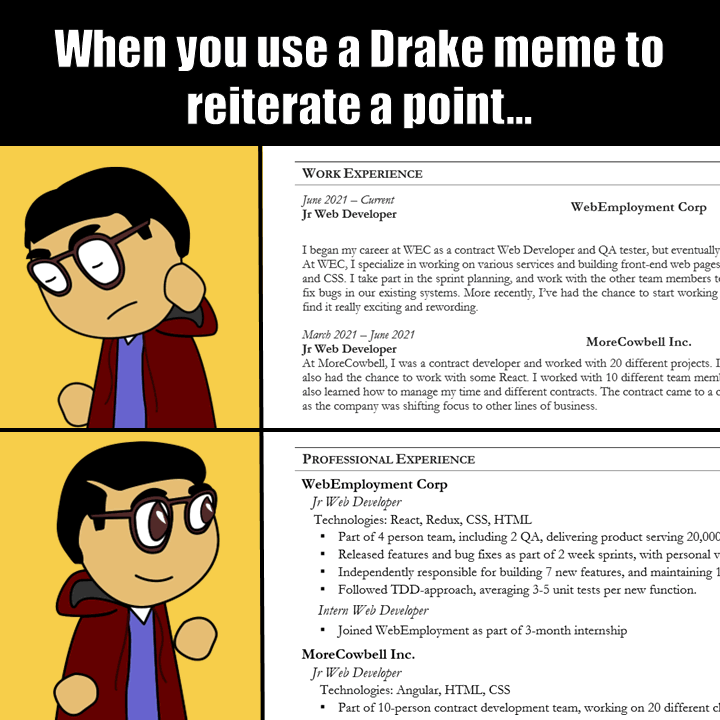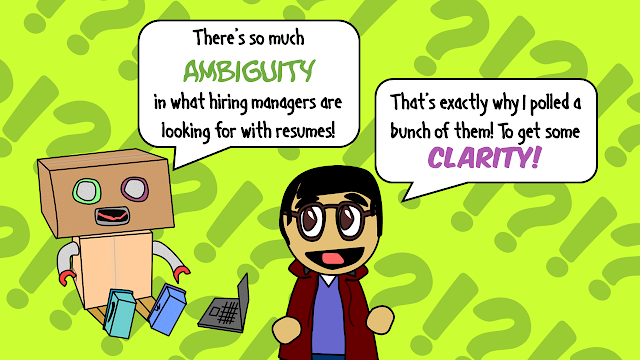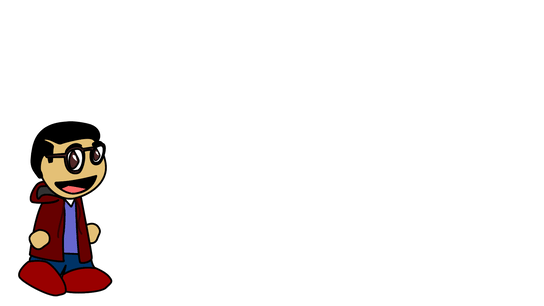Connecting the Dots
This past weekend I read a fascinating article by Cognitive Scientist and Marketing researcher Hang-Yee Chan. In this article Dr. Chan, backed by brain-scans, supports the case that storytelling is one of the most effective ways to land your message.
More specifically, crafting a linear narrative triggers the consumer to a process called mentalizing, "which is the ability to decipher the thoughts, feelings, and intentions of others. It's what makes human beings social, allowing them to interact and coordinate based on subtle cues. Mentalizing is also key to story comprehension."
I come from a long line of great story-tellers (it's one of the things that pushed me to pivot from writing code to Product Management) but it also had me thinking about a lot of the advice I give around crafting a solid resume.
First - I think it's worth reiterating: my own views on resumes have evolved over the years. I don't think resumes carry the same weight in the job-application process as they once did. Online applications, LinkedIn Profiles, and a candidate's digital footprint fill gaps that a static resume could never fill. But resumes are not obsolete.
Resumes are for the job seeker, not the hiring manager. They're cheat-sheets/1 pager/executive summaries that help keep the job seeker focused, on-message and on-brand. If you've had your resume reviewed by me in the last 3 years, you've most likely had me ask you: "What's the narrative?"
Ever since I landed on the concept of a "career narrative" (in brief: gone are the days of the long linear careers at 1 employer, and we are now firmly in the world of multiple roles, titles, industries, companies; If you think of a connect-the-dots, each role are the dots - a career narrative are the lines, connecting the dots, to form the picture) it made me reevaluate and reframe how I pitch my own talents.
It's why I don't think pivoting a Director of Engineering, managing 30+ people and 5+ products to becoming an individual contributor as a Product Manager is much of a pivot. The same set of skills that made me successful in one role are guiding me in my next. The narrative is me, hi. (cue Taylor Swift, "it's me, hi, I'm the problem it's me.")
This is also why I value people who have made large career changes. They have outlier-dots. If you think about any good movie, book - they have narratives you may not predict. The break the mold and offer disruption.
Connecting all this back to Dr. Chan's research, storytelling in your resume is important because, as Dr. Chan writes: "Communicators often package their messages in compelling tales for good reason. People's love for narratives seems hardwired in the brain."
Telling your own 'story' in a clear, concise, narrative that connects dots (no matter how divergent) in your resume will help you understand your own story. And, in understanding your own story, will help you better tell it. Clearly, concisely - but, most importantly, in a way that sticks. Just like any well-crafted 60 second ad campaign can.





